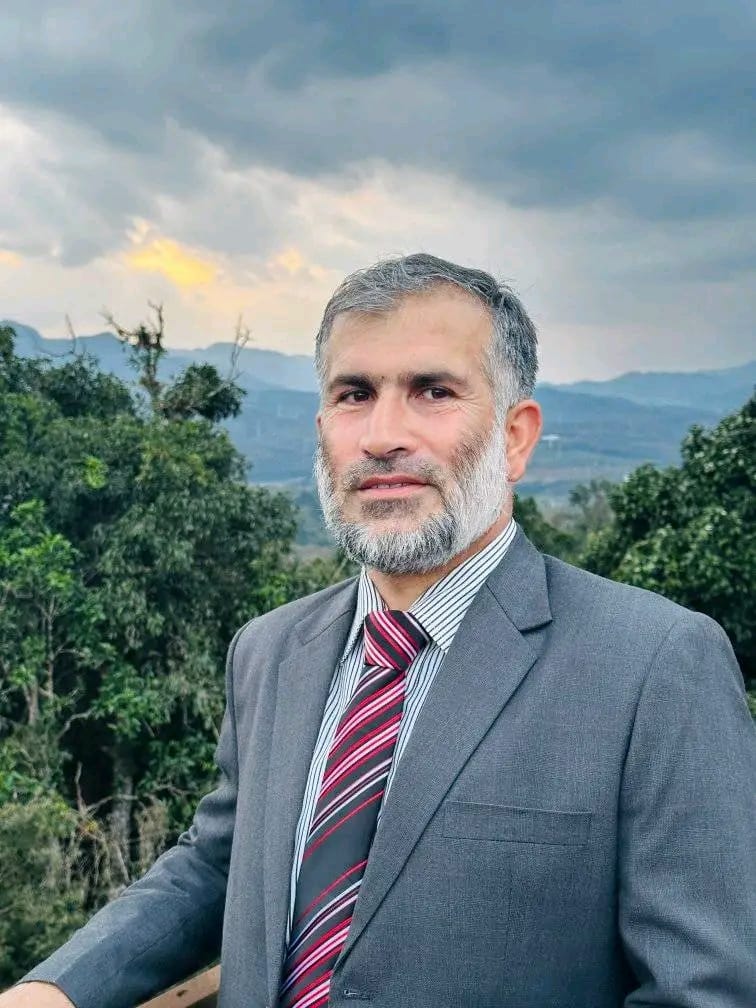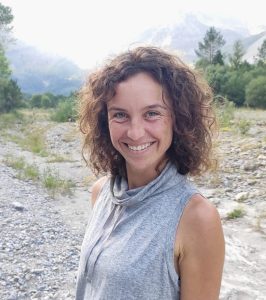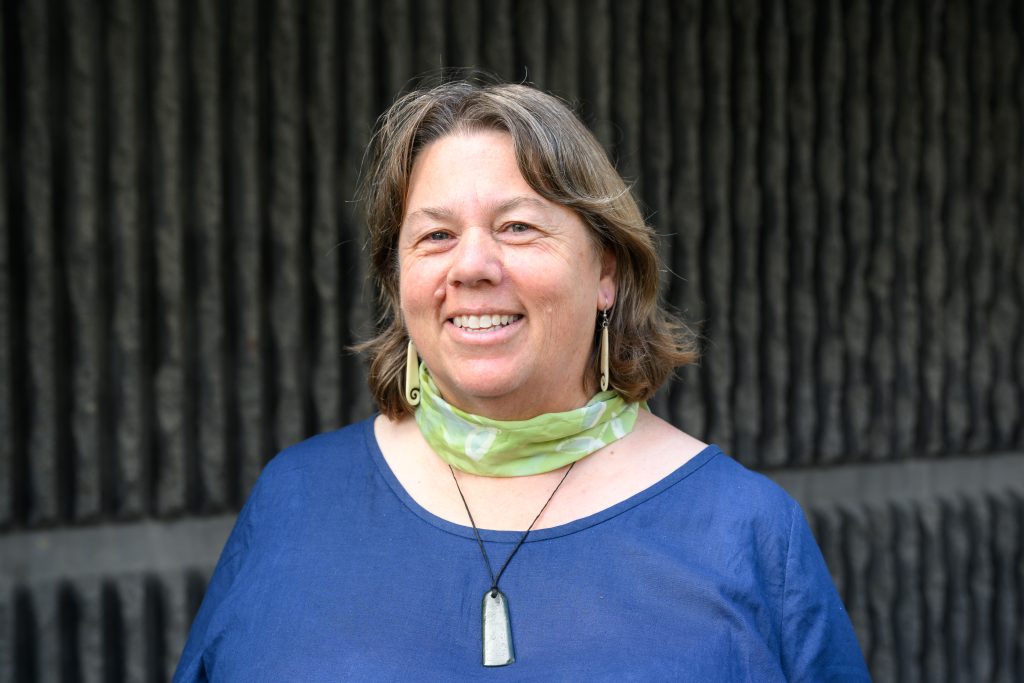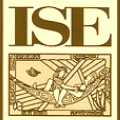| President | Secretary | Regional Representatives | Fellowship Program | Student Representatives |
| Vice President/President-elect | Treasurer | Global Coalition | Ethics Program | Congress Organizers |
President: Shujaul Mulk Khan

Dr. Shujaul Mulk Khan has been serving as a Tenured Professor of Ecology & Conservation in the Department of Plant Sciences, Quaid-i-Azam University (QAU) Islamabad, Pakistan for the last 10 years since 2015. He is a member of the Pakistan Academy of Sciences 2019-2029. He serves as Director of Career Counselling and Job Placement at QAU. He is also a Visiting Professor/Scientist at the University of Gastronomic Sciences, Italy, Toraighyrov, Margulan, and Astana International Universities of Kazakhstan. He served Hazara University Mansehra as a Lecturer in Botany for nine years (2006 -2015) as well.
He received various awards/distinctions during his academic career including the OIC-COMSTECH Best Research Paper Award 2023, Best Scholar award at IBC Shenzhen China 2017, Best Research Paper Award HEC Pakistan 2017, and Research Productivity/Best Performance Awards QAU, Pakistan in the years 2023, 2020 & 2019, Best PhD Thesis Award 2012, UK. He has been in the top 50 young productive Scientists of Pakistan under the age of 40 years and is listed in the top 2% of Scientists in the world as well. He supervised 12 PhDs and 71 MPhil students so far. He achieved 08 research projects worth Rs. 16 million plus and 18 travel grants to participate in scientific events around 20 different countries.
He has published 2 books, 36 book chapters, and 163 research papers in prestigious journals with an impact factor of more than 400, readings of more than 300000, and citations of 5200+. He participated/presented in more than 150 international and national conferences and academic events including invited/planary talks and published abstracts. He has also organized a number of international and national conferences. He has also participated in various TV and Radio programs to deliver scientific findings and expertise to society in a common language. He published a number of news articles as well.
He was elected Vice president of the International Society of Ethnobiology 2022-2024, and a member Board of Directors of ISGSS – the world’s renowned society. He also serves as General Secretary of the Pakistan Society for Conservation Biology 2019 to date. He is a member of a number of other international societies i.e., Slow Food Association, Conservation Biology, ESA, BES, BSBI, SBS, PBS, ISGSS, CBP, etc.
He has been on the Editorial Board of the prestigious impact factor journals including the Journal of Frontiers in Public Health, Ethnobiology and Ethnomedicines, Journal of Ethnobiology Research & Applications, and Pakistan Journal of Botany. He is a reviewer of dozens of impact factor journals. He has been a member of several social welfare groups and Literacy societies. He and his group celebrate various international days and arrange practical activities for students and other members of the society; for example World Forest Day, World Mountains Day, World Soil Day, and World Environment Day etc.
He and his research team mainly focus on the Ethno-ecology of the Himalayas, Karakorum, and Hindu Kush; the world’s largest mountain ranges with special emphasis on the potential of biodiversity and ecosystems at regional and global scales in relation to indigenous culture, natural habitat and sustainable utilizations. He is also working on the problems faced by the precious endemic flora.
His scientific work has had a high social impact in terms of the distribution of plants, awareness talks & walks, human capital development, climate change sensitization, presentations, consultations, voluntary activities & international days celebrations, and many more from the grassroots level to the higher levels.
Vice President-President Elect: Janelle Marie Baker

Janelle Marie Baker is an Associate Professor in Anthropology and the Master of Arts in Interdisciplinary Studies programs at Athabasca University in what is now known as northern Alberta, Canada. Her research is on traditional wild food and medicine security and sovereignty, and she has served as an expert witness for court cases regarding her research and land-based rights and natural law in Canada. Since 2006, she has studied sakâwiyiniwak (Northern Bush Cree) experiences with contamination of wild foods in Treaty No. 8 territory, an area of extreme extraction of oil sands and forests. In this context, Dr. Baker collaborates with Bigstone Cree Nation environmental monitors using community-based methods and ethnobiological and ethnoecological knowledge and methods to test moose, muskrat, water, fish, and plant foods and medicine samples, while partnering with toxicologists and microbiologists who study sources of harmful contaminants. She is also co-PI with Métis anthropologist Zoe Todd on a project that is restor(y)ing land use governance and bull trout population health in a contested area of the Rocky Mountain foothills in Alberta, Canada through podcasts and an upcoming museum exhibit. This work has grown into a Canadian Institute of Health Research-funded project working with Stoney Nakoda Women to test traditional foods for high selenium content. Dr. Baker is co-editor for the open-access journal Ethnobiology Letters, the Global Change/Global Health series at The University of Arizona Press, and a published volume with Leslie Main Johson on Indigenous contributions to health called “Walking Together”. She is currently serving as a Lead Author and task force member on Indigenous Knowledge and Local Knowledge content in the United Nations Environment Programme Global Environment Outlook (GEO)-7
Secretary: Nemer E. Narchi

Professor Nemer E. Narchi works at the Center for Human Geography, part of El Colegio de Michoacán, A.C., a federal research and teaching institution in social sciences and humanities in Mexico. He is an anthropologist with 24 years of experience in marine ethnobiology and biocultural conservation. Nemer is the Chair and co-founder of the CoLaboratories of Social Oceanography. His research focuses on marine ethnobiology and conservation, with particular emphasis on environmental violence, food systems, and environmental justice. He also serves as a participant editor for the Journal of Ethnobiology and Ethnomedicine and the Mexican Journal of Ethnobiology, Etnobiología. Additionally, he is a member of the Collective of Coordinating Editors for Latin American Perspectives and was the editor-in-chief of Relaciones Estudios de Historia y Sociedad, his institution’s journal, from 2019 to 2022.
Nemer has attended six International Congresses of Ethnobiology and has been a member of the ISE since 2010. He has previously served on the board as Student Representative (2010-2012) and as Regional Representative for Central and South America and the Caribbean (2020-2022).
Treasurer: Jelena Brezjanović-Shogren

Originally from Belgrade, Serbia, Dr. Jelena Brezjanović-Shogren was a visiting instructor of Anthropology at the Department of Sociology, Anthropology, and Social Work at the University of North Florida, where she taught courses in Linguistic and Cultural Anthropology. The scope of her research includes studies in bilingual language patterns, migration, ethnoecology, and conservation. Dr. Brezjanović-Shogren serves as the Executive Coordinator for the International Society of Ethnobiology, contributing her expertise to help promote worldwide biological, cultural, and linguistic diversity, especially the conservation of indigenous communities’ ecosystems and knowledge bases. She held an advisory committee member position at the University of North Florida Digital Humanities Institute and was a UNF Institutional Representative for the Florida Digital Humanities Executive Council (2022-2024).
Jelena has been assisting the organization and promotion of the International Congress of Anthropology since 2018 and has since then attended all subsequent congresses.
Regional Representatives:
Africa: Omari Patrick

Patrick Omari is committed to transformational social entrepreneurship research. He has worked at the intersection between culture, ethnobiology, infrastructure, and technology. Patrick has a wealth of experience acquired from projects and research work in various regions of the world outside Africa. He has published and presented papers in various disciplines closely associated with Anthropology, development, and technology.
Patrick has done extensive research in Sub-Saharan Ethnobiological Classification Systems, Conservation and Commercialisation of Traditional Medicines & Herbals and Aromatics, Human Aspects in Road Safety, Digitisation and promotion of road engineering software, and application of Artificial Intelligence among other topical interests. Education: Ph.D. in Management-Business Anthropology [2022-24]- San Sebastian College -Recoletos, Philippines-[Institute of graduate Studies]; Ph.D. in Ethnobiology (2009) University of Kent, Canterbury, UK [To be completed]; MSc in Ethnobotany (2004) University of Kent, UK; BA (honours)-Anthropology-Social-Cultural Studies. Moi University, Kenya; Post-graduate Certificates in Road Safety from Delft University, Netherlands.
MEMBERSHIPS
- Founder Member-African Journal of Ethnobiology
- Secretary General- Kenya Society of Ethnoecology
- Associate Member-Institute of Highway Engineers, UK
Central and South Americas and the Caribbean: Juarez Pezzuti

Juarez Pezzuti is a Full Professor at the University of Pará, teaching in the Centre For Advanced Amazon Studies and in the Institute of Biological Sciences. He graduated in Biology, and concluded his Master’s degree in Ecology at the National Institute of Amazonian Studies (INPA) and a doctorate in Ecology at the State University of Campinas UNICAMP), having studied the local management system of river turtles in Negro River basin. He has been conducting research on ecological and cultural aspects of wildlife use among Amazon indigenous and caboclo communities, community-based wildlife management and ethnozoology since 1995. More recently, his research focus has been directed to the application of local ecological knowledge (LEK) on wildlife monitoring programs in Brazil, especially In the development of community-based wildlife management plans incorporating LEK in the monitoring of target game species. He was the Program Chair of the 16th International Congress of Ethnobiology.
North Americas: Linda Black Elk

Linda Black Elk is an ethnobotanist and food sovereignty activist who specializes in teaching about culturally important plants and their uses as food, medicine, and materials. Linda proudly serves as the Educational Programming and Community Engagement Director at NATIFS – a Native-led, food sovereignty-focused nonprofit in Minneapolis, Minnesota. She also sits on the governing council of Makoce Ikikcupi, a Reparative Justice project on Dakota lands in Mnisota Makoce. She spends her free time with her husband and three sons, who are all citizens of the Oceti Sakowin.
Asia: Anil K. Goel
Dr. Anil K. Goel, Former Scientist-G & Head, Botanic Garden & Floriculture, CSIR-National Botanical Research Institute, Lucknow
Dr. Anil K. Goel did his M.Sc. (Botany) in 1977 from HNB Garhwal Central University, Srinagar, Uttarakhand. He carried out extensive research in the areas of Plant Taxonomy, Ethnobotany, Conservation, Medicinal Plants, and Horticulture. He earned his Ph.D. degree in Plant Taxonomy under Late Dr. UC Bhattacharya from the same university in 1982 as JRF & SRF at Botanical Survey of India, Northern Regional Centre, Dehradun from 1977-1982. He served as Scientist-B at CSIR-Central Drug Research Institute, Lucknow from 1984-1988 and as Scientist-C to G at CSIR-National Botanical Research Institute, Lucknow from 1989-2015.
Dr. Goel discovered & described over 15 plant species new to science and collected more than 25 endangered, endemic, rare taxa and interesting new records from different phytogeographical regions of the country. He conducted intensive surveys and collection of medicinal plants covering almost all geographical regions of India from Kashmir to Kanyakumari under the drug development program for the search of new lead molecules under the drug development program at CDRI, LUCKNOW.
Dr Goel worked as Secretary of, the Society of Ethnobotanists from 1996-1999 as well as the Managing Editor of the International Journal of Ethnobotany from 2000-2014. Presently Dr Goel is the Vice-President of Society of Ethnobotanists.
He has published over 250 research papers published in national and international journals and authored 06 books. In 2022, he published a coffee table book on Nelumbo (Lotus) He had been the Outstation Secretary and member of, the Editorial Board of the Indian Association of Angiosperm Taxonomy (IAAT).
Dr. Goel has been the recipient of the S.K. Jain Medal, the J.W. Harshberghar Medal of the Society of Ethnobotanists; the V.V. Sivarajan Gold Medal of the IAAT, and the BA Razi Medal from the Association for Plant Taxonomy (APT).
Dr. Goel was the recipient of a Common Wealth Science Council Fellowship, London to Visit Royal Botanic Gardens, Kew (UK) for an International Diploma in Plant Conservation. He has visited more than 12 countries under various scientific & technical exchange programs. Dr. Goel worked in Harvard University Herbarium (USA) for the study of ethnobotanical collections of Prof. R.E. Schultes from Amazon regions during August-September, 2022.
Dr. Goel had been involved in more than ten sponsored Research Projects from MoEnF & CC, Ministry of Agriculture, and CSIR to the tune of over Rs. Ten Crores. Currently, Dr Goel is working as an expert in the preparation of Reviews on Indian Medicinal Plants and Quality Standards of Indian Medicinal Plants at ICMR Hq., New Delhi targeting the Pharmaceutical Industry, expert member of the UP State Biodiversity Board, Lucknow, and expert for the development of a Botanic Garden (BGRI) at NOIDA.
Europe: Sandrine Gallois

Sandrine Gallois is a postdoctoral researcher in Ethnoecology, currently affiliated with the ICTA-UAB (Institute of Environmental Science and Technology at the Universitat Autònoma de Barcelona). Over the past 12 years, she has collaborated with local communities and Indigenous Peoples, exploring the profound connections between their livelihoods, health, cultures, and environments.
Gallois has extensive experience working with the Baka people of southeastern Cameroon, focusing on plant-human relationships, including local ecological knowledge, knowledge transmission, food, and health. Driven by a belief in the power of connecting knowledge and people to drive transformative change, she has also engaged in numerous projects at the intersection of art, science, and civil society.
Her research interests encompass biocultural diversity, cultural transmission, childhood learning, ethnobotany, local botanical knowledge, social-ecological systems, and the fusion of art and science.
Oceania and Pacific Islands: Cillia Wehi

Priscilla Wehi is an Associate Professor at the Centre for Sustainability at the University of Otago, Dunedin / Otepoti, Aotearoa, New Zealand, and Co-Director of Te Pūnaha Matatini, New Zealand’s national centre of research excellence in complex systems. She is a conservation biologist with 20 years of experience in linguistic and biocultural diversity and restoration, receiving her PhD in 2006. Her research explores relationships between people and plants and people and other animals, using a variety of approaches from exploration of Indigenous Māori oral tradition to examination of text archives and stable isotope analysis of museum collections. She has also worked with Māori communities on issues such as food sovereignty. Dr Wehi is passionate about partnership and engagement with communities and has worked with tribal groups from Ngāti Maniapoto, Waikato-Tainui, and Ngātiwai. She has created stories and comics based on her research for young readers, free to download from her website. She has served as an Associate Editor for People and Nature from 2017-2024, for other journals, and on national assessment panels in Aotearoa New Zealand. She has published over 60 papers and chapters in the Ethnobiology, Conservation, and Interdisciplinary literature. She is also involved in the Rights of Nature movement, especially in the Antarctic Rights working group. She spends her free time with her family, including three children and three mokopuna, who are all members of Waikato-Tainui.
ISE Ethics Committee Co-Chairs:
Govind Singh Rajwar

Govind Singh Rajwar is serving the Himalayiya University, Dehradun, India as a Professor of Botany. He has served as a Professor of Botany at Government Post Graduate College, Sri Dev Suman Uttarakhand University, Rishikesh, India. He is a Fellow of the Linnean Society of London, UK, National Institute of Ecology, India and Society for Plant Research, India, and a Member of the National Academy of Sciences India. He has explored the floristic and vegetational aspects of Garhwal Siwalik hills for his Ph D. He has a total teaching and research experience of 43 years. He has worked on biodiversity, ethnobotany, ecology, remote sensing studies, and the conservation of Himalayan vegetation. He has been a member of various academic boards of some universities in India. For his scientific contributions, besides being elected Fellow of some scientific bodies of the UK and India, he has received recognition as a brilliant young scientist by the XIV International Botanical Congress, West Berlin, Germany (1987) and an outstanding scholar award by The First International Congress on Ecological Integrity and Environmental Ethics: Living for a Sustainable Future, Pantanagar India (2014). He has edited 7 books on Himalaya/world mountains including 5 proceedings of conferences held in India, Italy, the Czech Republic, and Norway. He has published 114 research papers in various national and international research journals. He has completed 5 research projects on the ecology and conservation of Himalayan vegetation and has supervised 22 Ph.D. dissertations. Ha has presented papers at many national and international conferences held in Asia, Europe, and Africa including chairing technical sessions at international conferences held in Italy and China. He is working as an editor/editorial board member of World Environment, Journal of Sustainable Forestry, and Vegetos. Govind Singh Rajwar is serving the Himalayiya University, Dehradun, India as a Professor of Botany. He has served as a Professor of Botany at Government Post Graduate College, Sri Dev Suman Uttarakhand University, Rishikesh, India. He is a Fellow of the Linnean Society of London, UK, National Institute of Ecology, India and Society for Plant Research, India, and a Member of the National Academy of Sciences India. He has explored the floristic and vegetational aspects of Garhwal Siwalik hills for his Ph D. He has a total teaching and research experience of 43 years. He has worked on biodiversity, ethnobotany, ecology, remote sensing studies, and the conservation of Himalayan vegetation. He has been a member of various academic boards of some universities in India. For his scientific contributions, besides being elected Fellow of some scientific bodies of the UK and India, he has received recognition as a brilliant young scientist by the XIV International Botanical Congress, West Berlin, Germany (1987) and an outstanding scholar award by The First International Congress on Ecological Integrity and Environmental Ethics: Living for a Sustainable Future, Pantanagar India (2014). He has edited 7 books on Himalaya/world mountains including 5 proceedings of conferences held in India, Italy, the Czech Republic, and Norway. He has published 114 research papers in various national and international research journals. He has completed 5 research projects on the ecology and conservation of Himalayan vegetation and has supervised 22 Ph.D. dissertations. Ha has presented papers at many national and international conferences held in Asia, Europe, and Africa including chairing technical sessions at international conferences held in Italy and China. He is working as an editor/editorial board member of World Environment, Journal of Sustainable Forestry, and Vegetos.
Student Representatives:
Abdullah Allah

Abdullah is a Ph.D. Scholar at the Department of Plant Sciences Quaid-i-Azam University, Islamabad, Pakistan. Currently, he is a visiting researcher at the Department of Biology, Ecoinformatics & Biodiversity Section, Aarhus University, Denmark. He is interested in the ethnobiology of palms and wild food plants, in the Hindukush Himalayan valleys with a unique culture. His PhD work centers on the ecology, ethnobotany, and seed dormancy of a palm Nannorrhops ritchieana concerning climatic changes using species distribution or niche modeling techniques. Alongside basic curiosity about palm and climate change, Abdullah is highly motivated to contribute to the conservation and restoration of different species projects. He explored different areas of Pakistan for ecological and ethnobiological data collection. He has published 27 research papers and 12 book chapters. Abdullah presented his research work at 8 different prestigious conferences.
Avantika Thapa
Sara Alam
Marco Zanghi
Nikki Koutsochilis
Isabel Garibay Toussaint
Shaik Thahir Basha
2026 Congress Organizer:
Gerry Turpin (Chair of the 2026 ISE Congress)
